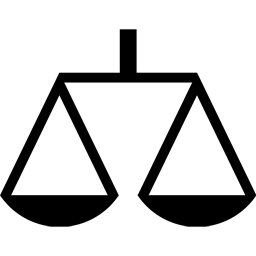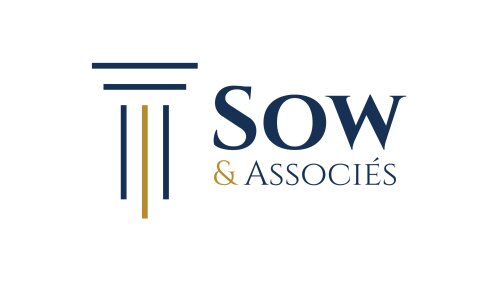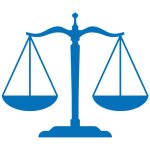Best Employer Lawyers in Dakar
Share your needs with us, get contacted by law firms.
Free. Takes 2 min.
List of the best lawyers in Dakar, Senegal
About Employer Law in Dakar, Senegal
Employer law in Dakar, Senegal refers to the set of legal rules and obligations that govern the relationship between employers and employees within the region. These laws cover various aspects such as contract formation, termination, employee rights, working hours, wages, social protection, and dispute resolution. The framework seeks to balance the interests of employers and employees while ensuring that both parties operate within a legal and ethical landscape. Dakar, as the capital and economic hub of Senegal, has a vibrant labor market where understanding employer law is crucial for business owners, HR professionals, and others involved in workforce management.
Why You May Need a Lawyer
Navigating employer law in Dakar can be complex due to the mix of statutory regulations, case law, and evolving legal standards. A lawyer with expertise in employment matters can help in various situations, including:
- Drafting, reviewing, or updating employment contracts to ensure compliance with local laws
- Handling employee disciplinary actions or terminations while minimizing legal risks
- Advising on workplace policies such as working hours, overtime, and leave entitlements
- Mediating disputes with employees or labor unions
- Representing employers in labor court proceedings or inspections by labor authorities
- Managing workplace accidents, injuries, or issues of occupational health and safety
- Ensuring social security and tax compliance for workforce management
- Addressing matters related to immigration when hiring foreign workers
Consulting a lawyer can save time, prevent costly mistakes, and provide peace of mind by ensuring your business operations align with the law.
Local Laws Overview
Employer law in Dakar is governed primarily by the Senegalese Labor Code (Code du Travail), supplemented by decrees, collective bargaining agreements, and international labor standards adopted by Senegal. Important aspects include:
- Written employment contracts are recommended and must specify terms such as duration, job description, remuneration, and notice periods.
- Standard working hours generally should not exceed 40 hours per week. Overtime requires compensation as specified by the Labor Code or collective agreements.
- Minimum wage rates are set by the government and updated periodically. Employers must ensure salaries meet or exceed these levels.
- Employers are responsible for registering employees with the social security system and making required contributions for pensions, health, and workplace accident coverage.
- Termination procedures must respect legal grounds and notice periods, and employers may need to pay severance or provide justification for dismissals.
- Workplace health and safety standards are strictly regulated, and employers must implement measures to protect their employees.
- Employees have the right to constitute and join trade unions. Collective bargaining is recognized under the law.
- Employers are subject to labor inspections to verify compliance with employment law and standards.
Frequently Asked Questions
What type of employment contracts are recognized in Dakar, Senegal?
Both fixed-term and open-ended (indefinite) contracts are recognized. Oral contracts are permitted for certain jobs, but written contracts offering clear terms are strongly recommended.
Is there a set minimum wage for employees in Dakar?
Yes, the government sets a minimum wage, which varies by sector and is regularly reviewed. Employers must ensure payments comply with these rates.
What are the standard working hours for employees?
The usual full-time workweek is 40 hours. Any work beyond this limit is considered overtime and must be compensated accordingly.
How is overtime regulated?
Overtime must be paid at premium rates determined by law or collective agreements. Employers should document overtime hours and payments carefully.
What is the process for terminating an employee?
Termination requires lawful grounds, appropriate notice, and, in some cases, severance pay. Employers must document the reasons and respect procedural requirements.
Are employers required to contribute to social security?
Yes, employers must register employees with the Caisse de Sécurité Sociale (CSS) and make monthly contributions covering various social insurance benefits.
What are an employer's obligations regarding workplace health and safety?
Employers must maintain safe working conditions, provide necessary protective equipment, and report workplace accidents or injuries to the authorities.
Can employers hire foreign workers?
Yes, but foreign workers generally need a work permit. Employers must comply with immigration laws and secure proper documentation before employment begins.
How can labor disputes be resolved?
Disputes may be settled internally, through mediation, or before labor tribunals. Employers are encouraged to seek amicable resolutions before pursuing litigation.
Are collective bargaining agreements binding on employers?
Yes, where applicable, these agreements have the force of law and regulate aspects such as pay, leave, and conditions for the sectors they cover.
Additional Resources
If you require more information or support, the following resources may be helpful:
- Ministry of Labor, Social Dialogue, Professional Organizations and Relations with Institutions
- Caisse de Sécurité Sociale (Social Security Fund)
- National Labor Inspectorate
- Chambers of Commerce and Employer Associations
- Trade unions and professional associations
- Legal aid centers and professional law firms specializing in employment law
Next Steps
If you need legal assistance concerning employer issues in Dakar:
- Gather all relevant documents, such as contracts, payslips, correspondence, and any written policies.
- Consider the specific issue you are facing and write down your questions and objectives.
- Contact a lawyer or legal professional with experience in employment law. Many offer initial consultations to assess your case.
- If your issue involves government procedures or compliance, reach out to the appropriate authority for clarification or documentation.
- Stay informed about your rights and obligations through reputable sources to prevent future problems.
Acting promptly ensures you remain compliant with Senegalese law and places your business on a solid legal footing.
Lawzana helps you find the best lawyers and law firms in Dakar through a curated and pre-screened list of qualified legal professionals. Our platform offers rankings and detailed profiles of attorneys and law firms, allowing you to compare based on practice areas, including Employer, experience, and client feedback.
Each profile includes a description of the firm's areas of practice, client reviews, team members and partners, year of establishment, spoken languages, office locations, contact information, social media presence, and any published articles or resources. Most firms on our platform speak English and are experienced in both local and international legal matters.
Get a quote from top-rated law firms in Dakar, Senegal — quickly, securely, and without unnecessary hassle.
Disclaimer:
The information provided on this page is for general informational purposes only and does not constitute legal advice. While we strive to ensure the accuracy and relevance of the content, legal information may change over time, and interpretations of the law can vary. You should always consult with a qualified legal professional for advice specific to your situation.
We disclaim all liability for actions taken or not taken based on the content of this page. If you believe any information is incorrect or outdated, please contact us, and we will review and update it where appropriate.













